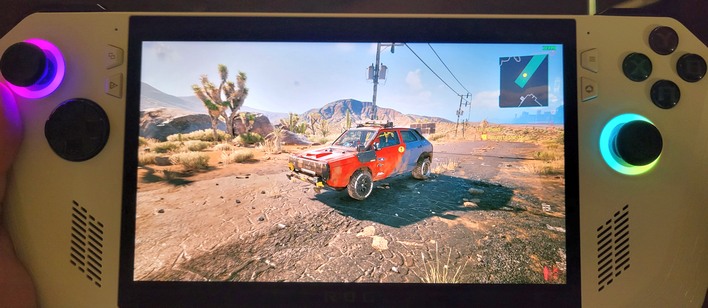Sorry, Handheld Gamers But Valve Is Not In A Hurry To Release A Faster Steam Deck 2
Many of those devices, particularly the newer ones, are actually faster than the Steam Deck, at least when they're able to flex their higher power ratings. The Steam Deck tops out at 15 watts by default, while most of these other gaming handhelds will let you crank the power all the way up to 30 watts or even higher. With all this competition, Valve's got to be considering a next-gen Steam Deck in the near future, right?
Well, uh, in a word: no. At least, not any time soon. While the company has specifically stated its intentions to make a "Steam Deck 2", it has also stated that such a device won't be arriving this year, and probably not next year, either. Valve's Lawrence Yang said back in March that it would take "a few years" for "a true next-gen Steam Deck" to be viable, and a new comment from Valve's Pierre-Loup Griffais echoes that sentiment:
"It's important to us that the Deck offers a fixed performance target for developers, and that the message to customers is simple, where every Deck can play the same games. As such, changing the performance level is not something we are taking lightly, and we only want to do so when there is a significant enough increase to be had. We also don't want more performance to come at a significant cost to power efficiency and battery life. I don't anticipate such a leap to be possible in the next couple of years, but we're still closely monitoring innovations in architectures and fabrication processes to see where things are going there."There are two main sentiments in the remarks. First, Valve wants to maintain a consistent performance target. This makes sense when you consider that, despite its true nature as what is essentially a handheld PC, Valve considers the Steam Deck to be a gaming console. Game developers enjoy having a fixed performance spec to target, and the Steam Deck offers that.
— Pierre-Loup Griffais to The Verge via e-mail

You may recall how we mentioned that other gaming handhelds can leave the Steam Deck in the dust if you crank up the power limit on them. That's true, but it doesn't take an electrical engineer to understand that doing so is going to result in drastically-reduced battery life. Indeed, in our testing of the ASUS ROG Ally, we managed to drain the whole battery in just 49 minutes playing Cyberpunk 2077.
Even worse, if you limit these newer systems to the Steam Deck's 15W power cap, they often don't offer any better performance than Valve's machine because the SoCs in them were really designed for laptops, not for handheld systems. Valve's semi-custom "Aerith" SoC was carefully-apportioned for exactly the kind of power consumption and performance that Valve wanted out of the machine.

There are literally tens of thousands of games on Steam that will run flawlessly on the Steam Deck. Classic games like Dragon's Dogma, RAGE, and Sonic All-Stars Racing are still tons of fun, but you aren't limited to older games—the performance is fantastic in recent titles like 30XX, Blazblue: Entropy Effect, and Pseudoregalia. With that in mind, there's really no need for a Steam Deck 2, and if you absolutely have to play Cyberpunk 2077 at the airport, well, there are plenty of other handhelds to choose from in the mean time.


